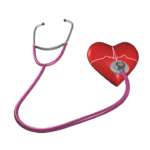 What is Labile Hypertension? Labile means ever-changing, and in labile hypertension, blood pressure fluctuates far more than usual. Your blood pressure might soar from 119/76 mm Hg in morning to 170/104 mm Hg in evening. Whatever the cause, these transient episodes of hypertension can be dangerous and should be treated. Home blood pressure monitoring over a 24-hour period helps determine Read More …
What is Labile Hypertension? Labile means ever-changing, and in labile hypertension, blood pressure fluctuates far more than usual. Your blood pressure might soar from 119/76 mm Hg in morning to 170/104 mm Hg in evening. Whatever the cause, these transient episodes of hypertension can be dangerous and should be treated. Home blood pressure monitoring over a 24-hour period helps determine Read More …
Labile Hypertension: Symptoms, Causes and its Treatment
 What is Labile Hypertension? Labile means ever-changing, and in labile hypertension, blood pressure fluctuates far more than usual. Your blood pressure might soar from 119/76 mm Hg in morning to 170/104 mm Hg in evening. Whatever the cause, these transient episodes of hypertension can be dangerous and should be treated. Home blood pressure monitoring over a 24-hour period helps determine Read More …
What is Labile Hypertension? Labile means ever-changing, and in labile hypertension, blood pressure fluctuates far more than usual. Your blood pressure might soar from 119/76 mm Hg in morning to 170/104 mm Hg in evening. Whatever the cause, these transient episodes of hypertension can be dangerous and should be treated. Home blood pressure monitoring over a 24-hour period helps determine Read More …
 How Diet is Related to Low Blood Pressure? Low blood pressure, also known as hypotension, is a condition in which a person’s blood pressure drop so low that it causes symptoms like dizziness, fainting, fatigue, nausea, difficulty breathing, blurred vision, palpitations, and cold, clammy skin. A drastic drop in blood pressure can cause heart, neurological and endocrine disorders. The organs
How Diet is Related to Low Blood Pressure? Low blood pressure, also known as hypotension, is a condition in which a person’s blood pressure drop so low that it causes symptoms like dizziness, fainting, fatigue, nausea, difficulty breathing, blurred vision, palpitations, and cold, clammy skin. A drastic drop in blood pressure can cause heart, neurological and endocrine disorders. The organs  Risks of Low Blood Pressure The main risks of low blood pressure (hypotension) occur due to mainly (but not always) from shock caused by severe injury or illness. Even moderate forms of low blood pressure can cause dizziness and weakness. But the bigger concern is that they can also cause injury from falls due to fainting. Falls in older adults
Risks of Low Blood Pressure The main risks of low blood pressure (hypotension) occur due to mainly (but not always) from shock caused by severe injury or illness. Even moderate forms of low blood pressure can cause dizziness and weakness. But the bigger concern is that they can also cause injury from falls due to fainting. Falls in older adults  Hypertension is a common condition that has little to no symptoms, which means that many people that have high blood pressure don’t even know that they have it. Having high blood pressure is also a strong indicator of increased risk for heart disease, heart attacks, and strokes. That’s why it’s important to have your blood pressure checked at least annually
Hypertension is a common condition that has little to no symptoms, which means that many people that have high blood pressure don’t even know that they have it. Having high blood pressure is also a strong indicator of increased risk for heart disease, heart attacks, and strokes. That’s why it’s important to have your blood pressure checked at least annually  World Kidney Day World Kidney Day is a global awareness campaign aimed at raising awareness of the importance of our kidneys. World Kidney Day is observed annually on the 2nd Thursday in March. At the start of this holiday, 66 countries observed this date in 2006. Within two years, this number rose to 88. World Kidney Day is a joint
World Kidney Day World Kidney Day is a global awareness campaign aimed at raising awareness of the importance of our kidneys. World Kidney Day is observed annually on the 2nd Thursday in March. At the start of this holiday, 66 countries observed this date in 2006. Within two years, this number rose to 88. World Kidney Day is a joint  Blood pressure will change through the various stages of your pregnancy as your body goes through a variety of changes. It will be checked by your midwife (midwives are specialists in pregnancy, childbirth, postpartum and women’s sexual and reproductive health) at your visits. If you have high blood pressure in pregnancy before week 20 it’s possible that it was a
Blood pressure will change through the various stages of your pregnancy as your body goes through a variety of changes. It will be checked by your midwife (midwives are specialists in pregnancy, childbirth, postpartum and women’s sexual and reproductive health) at your visits. If you have high blood pressure in pregnancy before week 20 it’s possible that it was a  What is pulmonary hypertension? Pulmonary hypertension (PH) is an increase in blood pressure in the blood vessels that carry blood to the lungs. It is a rare lung disorder but a serious health problem. Pulmonary blood pressure is normally a lot lower than systemic blood pressure (delivering oxygen throughout the body from heart). Normal pulmonary-artery pressure is about 14 mm
What is pulmonary hypertension? Pulmonary hypertension (PH) is an increase in blood pressure in the blood vessels that carry blood to the lungs. It is a rare lung disorder but a serious health problem. Pulmonary blood pressure is normally a lot lower than systemic blood pressure (delivering oxygen throughout the body from heart). Normal pulmonary-artery pressure is about 14 mm  DASH Diet is a lifelong approach to healthy eating that is designed to treat or prevent high blood pressure. The DASH diet helps to reduce sodium in your diet and eat a variety of foods rich in nutrients that help lower the blood pressure such as calcium, potassium and magnesium.
DASH Diet is a lifelong approach to healthy eating that is designed to treat or prevent high blood pressure. The DASH diet helps to reduce sodium in your diet and eat a variety of foods rich in nutrients that help lower the blood pressure such as calcium, potassium and magnesium.
 Artificial sweeteners can have side-effects including weight gain, diabetes, high blood pressure, metabolic disorders, taste bud issues etc.
Artificial sweeteners can have side-effects including weight gain, diabetes, high blood pressure, metabolic disorders, taste bud issues etc.